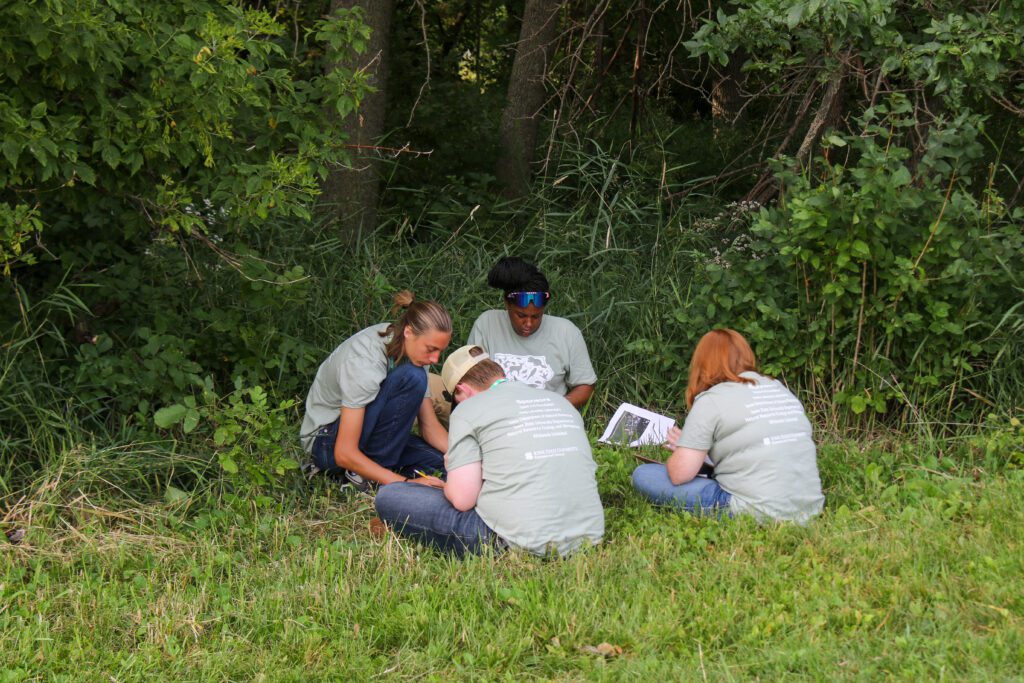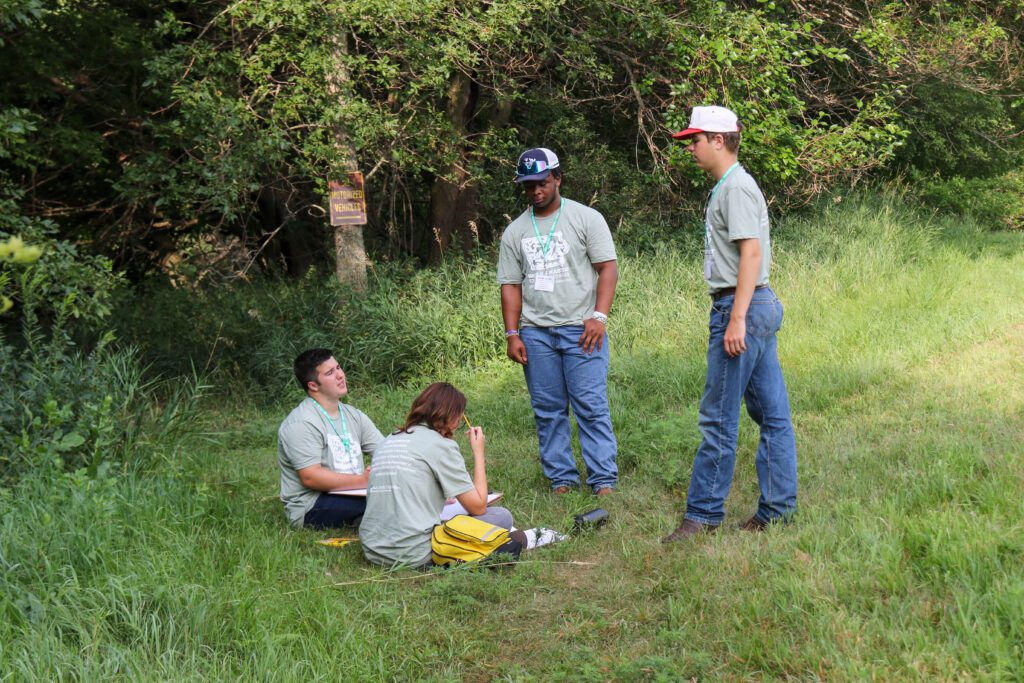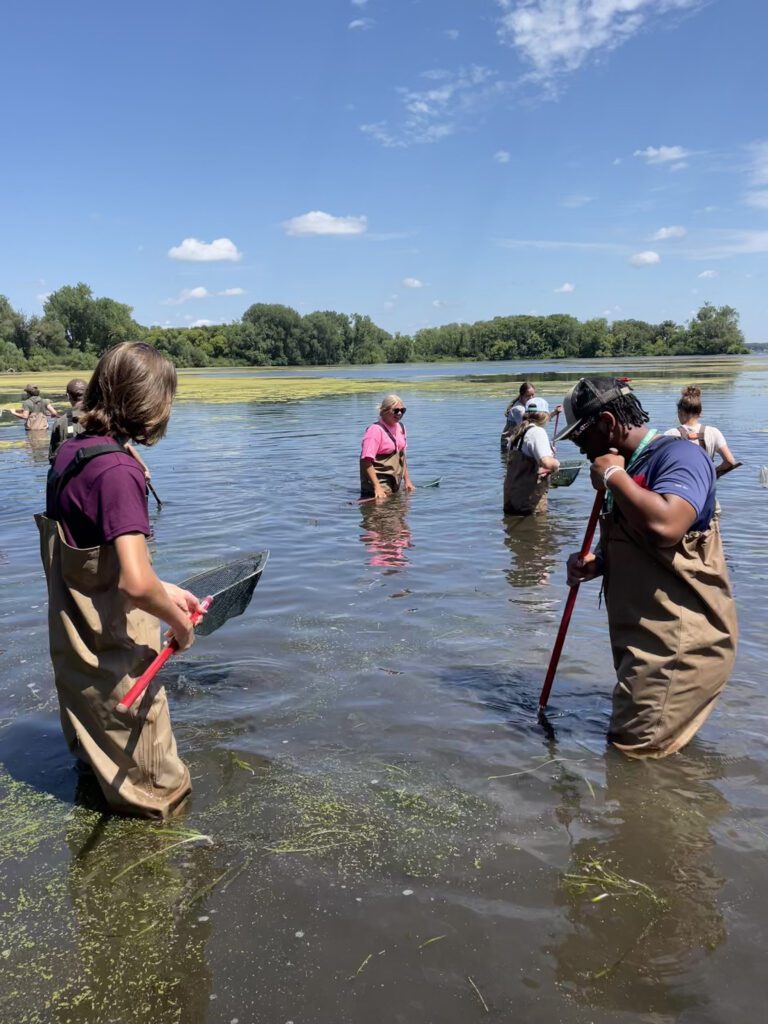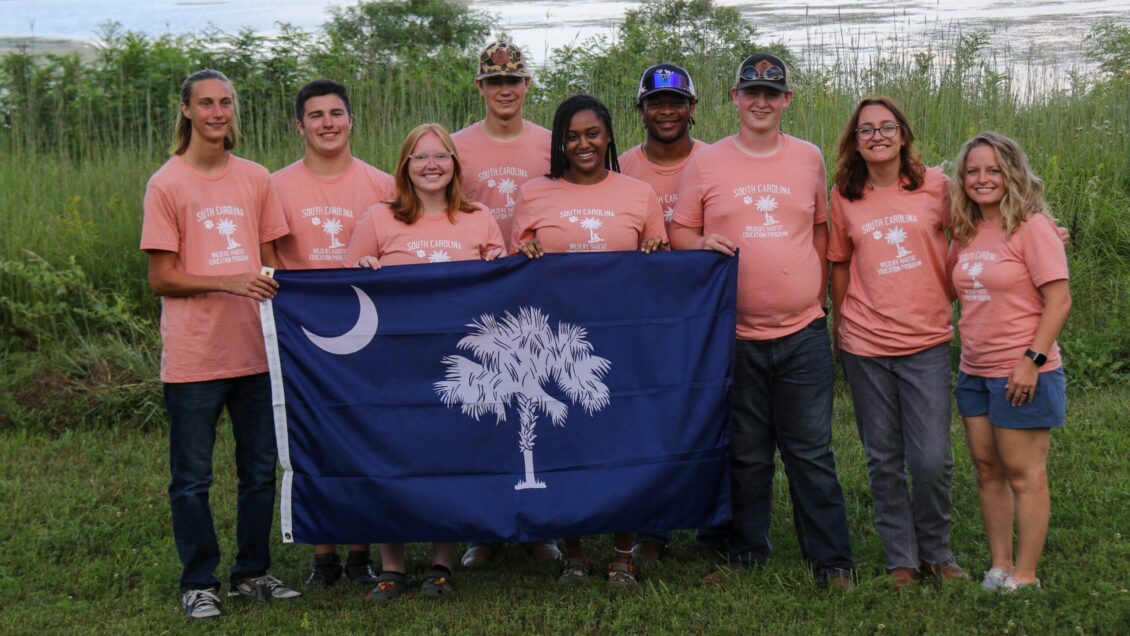Milford, Iowa — For Pendleton High School student Thomas Marshall, getting to visit Iowa and study new and unfamiliar wildlife species was already a memorable experience — even before he and his teammates showed off how much they already knew.
With 16 teams from 15 states competing, the Wildlife Habitat Education Program (WHEP) allows young people from across the country to test their wildlife knowledge in a friendly competition.
And suffice it to say, South Carolina’s youth shined brightly on the big stage.
“The trip to nationals was so memorable, getting to study so many new things out in Iowa that I had never heard of before was cool, along with the new species I was not familiar with yet,” Marshall said. “I really enjoyed the wildlife challenge and getting to see so many local and national species up close.”

In this year’s national contest in August, the South Carolina FFA team captured first place in its division — with a clean sweep of the top four spots by Marshall, Bailee Kay, Jonathan Lewis and Cierra Stone, respectively — while the South Carolina 4-H team took third place in its division, with Thatcher McPhail finishing in sixth and Grayson Decker taking ninth place individually.
Aemeliania Worl and Kendal Turmon also competed for the Anderson 4-H team, while Blake Berry and Katie Gilson from Pendleton High School served as coaches for the two teams.
“I really enjoyed working with students on the WHEP curriculum,” Gibson said. “I teach the curriculum to my classes when we are learning about natural resources. The curriculum covers so many topics on wildlife management that everyone can find something that interests them. The national competition was one of the best well-organized trips I have ever been a part of and the students enjoyed themselves the entire time. I am grateful to (South Carolina 4-H professionals) Mallory Maher and Rick Willey for helping Mr. Berry and me in training and preparing the team for nationals.”
WHEP is a 4-H and FFA youth natural resource program dedicated to teaching wildlife and fisheries habitat management to junior- and senior-level (ages 8-19) youth in the United States. It also provides an opportunity for participants to test their wildlife knowledge in a friendly competition, as each state supporting WHEP conducts an annual contest and the winning senior (14-19 years of age) WHEP team from each state earns the right to attend the annual National WHEP Contest.

“Preparing teams for the State and National WHEP competitions allows me to really work closely with students and stress with them the importance and relevance of conservation. I am very proud of my state and national champion teams, WHEP has given them the inspiration to pursue other interests in natural resources and the confidence that will lead to passion in the outdoors and career success,” Berry said.
But while the teams’ success in the national contest was certainly something to write home about, each of the young people who participated cited a different aspect as their favorite memory.
For Stone, it was the educational day before the competition even started.
“We had the opportunity to speak with several members of the Iowa Department of Natural Resources, and they educated us on the historical impact of the tallgrass prairie in their state,” she said.
And her teammate Kay concurred: “My favorite part about the National WHEP competition was our educational day before the competition where we got to learn about a different ecosystem alongside others from all over the country.”

Turmon loved the environment and energy of everyone involved, while Decker also enjoyed the social aspects and “being able to meet new people from all over the country, while doing something that we all worked hard for.”
Lewis called it an “eye-opening experience,” and McPhail said he would “remember it forever.”
Worl’s favorite part was spending time with friends and learning about wildlife and ecosystems: “I learned so much over those four days in Iowa and so much more the past however many months we were studying for state,” she said.
Oconee County 4-H Youth Development Agent Maher served on the National WHEP Committee, which is comprised of Wildlife Extension Specialists from across the country, for the first time.
“It was so great to interact with youth and their coaches from across the country and it was fun arriving to the National Contest a few days early to scope out the perfect location for the WHEP Contests to take place and to write the scenario that the teams would be tasked with to write a management plan. It was truly an honor to represent South Carolina on the National Level and even more rewarding to watch our South Carolina teams perform so well and showcase the amazing program that we have back home,” she said.
Support for S.C. WHEP and travel to the National Contest is provided by the Nemours Wildlife Foundation.
Get in touch and we will connect you with the author or another expert.
Or email us at news@clemson.edu

